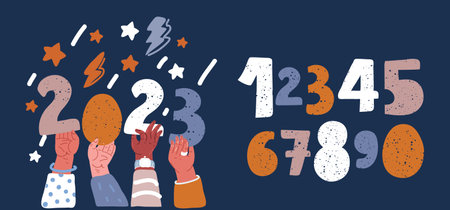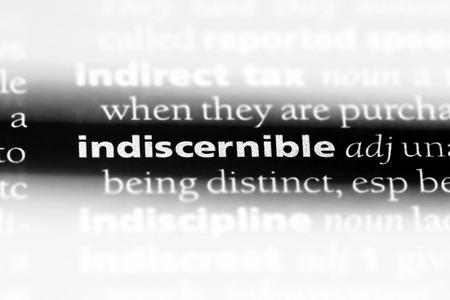1. Introduction: Chased Dreams in American Culture
Dreams about being chased are among the most common nightmares reported by people across the United States. Whether it’s running from an unknown figure, a wild animal, or even something symbolic, these dreams often leave us waking up with a pounding heart and lingering anxiety. But why do so many Americans experience this type of dream? To answer that question, we need to look at how dream interpretation has developed in American culture and what being chased might mean for people living in the U.S.
The American Approach to Dream Interpretation
In the United States, dream interpretation is a blend of psychology, pop culture, and personal beliefs. While some Americans turn to classic dream dictionaries or online forums, others may reference the work of famous psychologists like Sigmund Freud or Carl Jung. More recently, mental health professionals have encouraged looking at dreams as reflections of our inner emotions and daily stressors rather than as mystical predictions.
Why “Being Chased” Is So Common in American Dreams
There are several reasons why being chased shows up so often in American dreams. Here’s a quick look at the possible explanations:
| Reason | Description |
|---|---|
| High Stress Levels | Many Americans live fast-paced lives with constant pressure from work, family, and finances. This stress can manifest as chase dreams. |
| Fear and Anxiety | Concerns about safety, crime, or personal challenges can turn into symbolic threats chasing us in our sleep. |
| Cultural Influences | Movies, TV shows, and news stories often feature chase scenes, making them familiar images that show up in our subconscious. |
| Avoidance Issues | Sometimes, being chased represents trying to escape problems or difficult emotions instead of facing them head-on. |
Chase Dreams Reflecting the American Psyche
For many Americans, these dreams can be a way for the mind to process everyday worries or deeper fears. Instead of just random images, being chased in a dream may be your brain’s way of dealing with modern life’s pressures—whether it’s deadlines at work, social expectations, or even news about global events. By understanding what these dreams might represent, we can gain insight into not only our individual concerns but also the collective anxieties present in American society today.
2. Psychological Roots: Stress and Anxiety as Motivators
Understanding the American Chase Dream
In the U.S., life can feel like a constant race—balancing work, family, finances, and personal goals. It’s no surprise that many Americans dream about being chased. These dreams often reflect how stress and anxiety show up in our minds when were asleep. The “chase” becomes a symbol for the pressures we face every day.
Common Triggers of Chase Dreams in American Life
| Trigger | Description | Example in Daily Life |
|---|---|---|
| Job Pressure | The fear of not meeting expectations or losing a job. | Worrying about an upcoming performance review at work. |
| Financial Stress | Anxiety over bills, debt, or providing for loved ones. | Stressing about paying rent or student loans on time. |
| Social Expectations | The pressure to fit in, succeed, or keep up with others. | Feeling overwhelmed by social media or comparing yourself to peers. |
| Family Responsibilities | The sense of being pulled in different directions by family needs. | Trying to balance parenting, caring for elders, and personal time. |
How Stress Turns into Chase Dreams
When you’re under stress, your mind keeps working even while you sleep. Your brain may turn these worries into stories where you’re running away from something. The “chaser” could represent a boss, a deadline, debt collectors, or just the feeling that you can’t slow down. In America’s fast-paced culture, it makes sense that so many people experience these chase scenarios in their dreams.
The Role of Anxiety and Escape Fantasies
Anxiety often fuels these dreams. Sometimes, being chased is less about what’s behind you and more about wanting to get away—from stress, demands, or even your own high standards. For Americans who value independence and success, these dreams might be your mind’s way of searching for escape or relief when awake life feels overwhelming.

3. Fear Factors: Social and Personal Triggers
Chase dreams are some of the most common nightmares among Americans, and they don’t just come out of nowhere. Our daily lives in the United States are filled with unique pressures and anxieties that can shape what we dream about when our heads hit the pillow. Let’s break down some of the specific fears and triggers in American society that often lead to these recurring dreams of being chased.
Job Security: The Fear of Falling Behind
In a culture that values hard work and achievement, many Americans worry about their jobs. Whether it’s fear of layoffs, pressure to perform, or concerns about not keeping up with coworkers, work-related stress is a big driver behind chase dreams. People may dream about being chased as a reflection of feeling threatened or overwhelmed at work.
Social Expectations: Fitting In and Standing Out
American culture puts a lot of emphasis on social status, image, and belonging. The pressure to fit in—whether at school, at work, or online—can make people feel like they’re constantly running from judgment or criticism. These feelings often show up as chase dreams, where the pursuer might represent society’s expectations or the fear of not measuring up.
Safety Concerns: Real Threats and Media Influence
Safety is another big concern for many Americans. News reports about crime, violence, or even natural disasters can heighten our sense of vulnerability. When we go to sleep carrying these worries, our minds sometimes turn them into vivid chase scenarios where we’re running from danger.
Common American Triggers for Chase Dreams
| Trigger | Example | Dream Connection |
|---|---|---|
| Job Security | Losing a job, missing deadlines | Running from an unknown threat at work |
| Social Pressure | Bullies at school, fear of embarrassment | Being chased by faceless crowds or authority figures |
| Physical Safety | Crime in the neighborhood, scary news stories | Fleeing from attackers or dangerous situations in dreams |
| Personal Failure | Not achieving goals, disappointing others | Pursued by shadowy figures representing guilt or shame |
The Takeaway on Chase Dream Triggers in America
The things that keep us up at night—job worries, social pressure, safety concerns—can all sneak into our dreams. In American culture, where there’s always something to strive for and plenty to worry about, it’s no wonder so many people find themselves running in their sleep.
4. Escape and Coping: How Americans Interpret Running Away
Dreams as a Mirror of Real-Life Stress
When Americans dream about being chased, it often reflects more than just a scary nighttime experience. These dreams can act as a mirror, showing how people deal with daily pressures and challenges. In American culture, running away in dreams is not only about fear—its also connected to the desire for freedom, control, and finding ways to handle stress.
The Cultural Meaning of Escape
Escape is a powerful theme in the American psyche. From classic road trips to the popularity of adventure movies, the idea of “getting away” is deeply woven into American life. This cultural backdrop shapes how people interpret chase dreams. Many see running away as a symbol of taking action or seeking a fresh start rather than simply giving in to fear.
Common Coping Mechanisms and Their Dream Connections
| Coping Mechanism in Daily Life | How It Appears in Chase Dreams |
|---|---|
| Avoiding stressful situations | Running from an unknown pursuer |
| Seeking independence or change | Escaping from a threatening place or person |
| Problem-solving and planning ahead | Finding clever ways to hide or outsmart the chaser |
| Turning to friends or support systems | Looking for help while being chased in the dream |
Interpreting Running Away: More Than Just Fear
For many Americans, dreaming about running away isn’t just about feeling scared—it’s about figuring out what needs to change or what needs attention in their waking lives. These dreams might encourage someone to face issues they’ve been avoiding or inspire them to seek new opportunities. By looking at both the dream and real-life coping styles, Americans can better understand their own responses to stress and find healthier ways to deal with challenges.
5. Collective Consciousness: The Chase Dream as a Cultural Mirror
When Americans dream about being chased, it isn’t just a personal experience—it can also reflect the shared anxieties and values of our society. In many ways, chase dreams act like a mirror, showing us what we collectively worry about or desire to escape from.
How Chase Dreams Reflect American Culture
Throughout American history, themes like individual freedom, competition, and overcoming obstacles have played big roles in shaping the national identity. These same themes often appear in our dreams. When someone dreams of being chased, it could symbolize the pressure to succeed, the fear of failure, or the urge to escape social expectations. The “chase” becomes a metaphor for running after (or away from) the American Dream.
Societal Stressors That Influence Chase Dreams
| Societal Factor | Common Dream Interpretation |
|---|---|
| Job Insecurity | Feeling chased by job loss or financial worries |
| Social Expectations | Pressure to fit in or meet standards; chased by judgment |
| Political Uncertainty | Anxiety about the future; running from chaos or instability |
| Media Overload | Sensory overwhelm; chased by constant news or information |
| Pandemic/Health Fears | Escaping unseen threats; feeling pursued by illness or change |
The Power of Shared Experience
Chase dreams are so common that they connect people across different backgrounds. When Americans talk about these dreams, they often discover they’re not alone in their fears or stress. This shared experience can create a sense of unity—even if it’s around something as simple as running away in your sleep.
The Role of Collective Fears and Hopes
America has always had big dreams and big worries. The things that make headlines—economic shifts, changes in social norms, political debates—all seep into our subconscious minds. As a result, chase dreams don’t just reveal what’s going on inside one person’s mind; they show what’s happening in the heart of the nation. By understanding these dreams, we get a better look at what matters most to Americans right now—and what we hope to leave behind.


